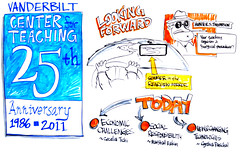Hosted by Carlos Gasca Yanez on the
Social Edge, this
on-line discussion addresses what is the oldest, most intractable problem facing any group of people trying to do anything: fragmentation and individual control of territory.
You see it in religion, politics, families, companies, offices, on the university campus, on teams. Shakespeare's whole career was based on describing the betrayal and dysfunctional loyalties of nations and kin.
From an excerpt of The Fiefdom Syndrome: The Turf Battles That Undermine Careers and Companies - And How to Overcome Them by Robert J. Herboldat:
by Robert J. Herboldat:
The problem begins when individuals, groups, or divisions--out of fear--seek to make themselves vital to their organizations and unconsciously or sometimes deliberately try to protect their turf or reshape their environment to gain as much control as possible over what goes on.
It is a natural human tendency, probably dating back to the origin of our species. But if this human tendency isn't managed properly, the damage caused by these "fiefdoms" can begin to undermine an organization. Left untouched, fiefdoms can toll the death knell of what should have been a strong and vital organization...
In in European medieval times, under the system of
feudalism, a
fiefdom often consisted of inheritable lands or revenue-producing property granted by a liege lord, in return for a form of allegiance. However anything of value could be held in fief, such as an office, a right of exploitation (e.g., hunting, fishing) or any other type of revenue, rather than the land it comes from.
source: WikipediaThe SocialEdge conversation gets at the importance of understanding--and working with--the realities of fiefdoms and social change, particularly in overcoming this destructive behavior for social good.












